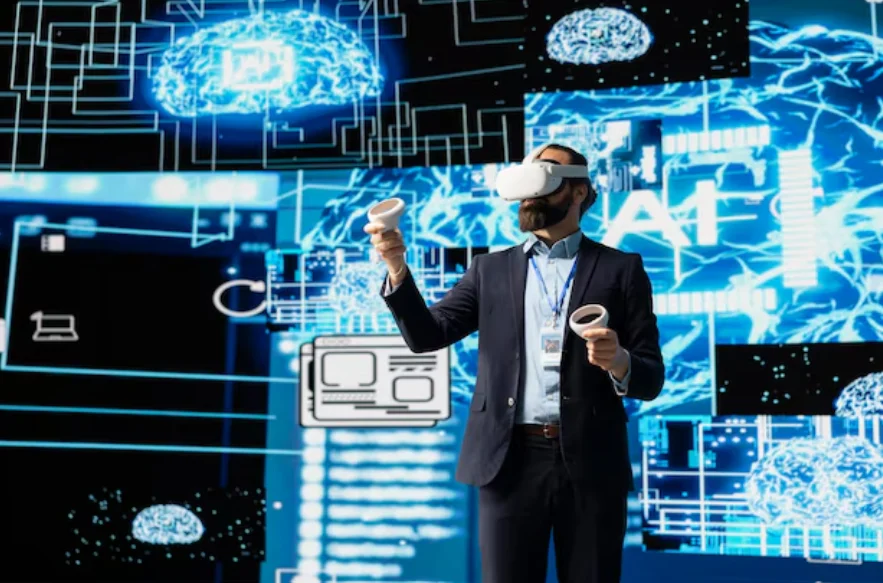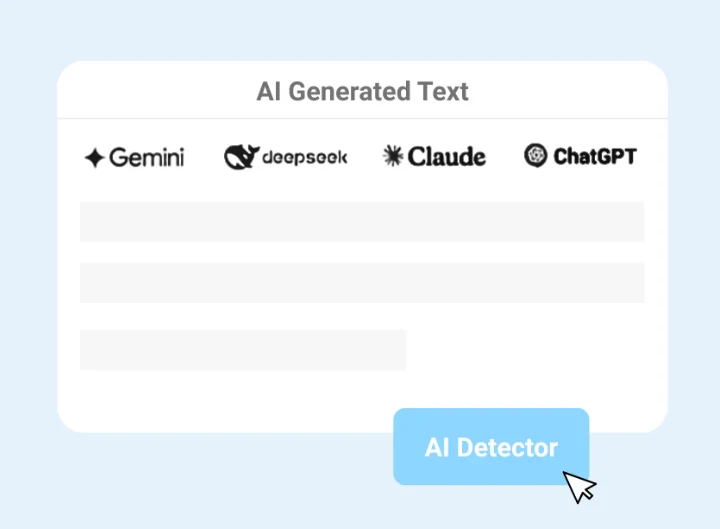AI at Work: How Automation and Intelligence are Transforming Industries

Artificial intelligence (AI) is no longer just a futuristic concept—it’s embedded in nearly every industry. From manufacturing and healthcare to finance and customer service, AI-driven automation and machine learning are streamlining operations, enhancing productivity, and redefining job roles. Whether it’s chatbots handling customer inquiries, algorithms predicting market trends, or robots assembling products with precision, AI is transforming the way businesses function. But what does this mean for workers and businesses? How is AI reshaping industries, and what skills are becoming more valuable in this new landscape?
This article explores the impact of AI on different sectors and the evolving workplace dynamics in an increasingly automated world.
The Rising Demand for AI Expertise in the Workforce
With AI becoming a core part of business operations, companies are actively seeking professionals who understand and can work with these technologies. The demand for AI expertise has surged across industries, from tech giants to startups looking to integrate automation into their workflows. Companies need professionals who can develop AI models, analyze data, and implement intelligent systems to improve business performance.
As AI continues to advance, educational institutions have responded by offering specialized degrees and certifications in artificial intelligence, machine learning, and data science. A bachelor’s in artificial intelligence is becoming increasingly valuable, providing students with the technical knowledge required to build and manage AI systems. Those who invest in AI-related education are likely to find themselves in high-demand roles such as AI engineers, automation specialists, and data analysts.
Beyond technical expertise, professionals who understand the ethical implications of AI and its impact on business strategy will also be highly sought after. As AI continues to transform industries, employees who can bridge the gap between technology and business needs will play a crucial role in shaping the future of work.
Content teams are also tapping into tools like an AI article writer from platforms such as Arvow to scale production efficiently while aligning with evolving digital demands.
AI in Healthcare: Enhancing Diagnosis and Patient Care
The healthcare industry has witnessed some of the most groundbreaking advancements in AI, revolutionizing patient care, diagnostics, and treatment planning. AI-powered algorithms can analyze medical images, detect diseases at early stages, and recommend treatment options with high accuracy.
AI is also improving patient care through predictive analytics. By analyzing patient data, AI can identify individuals at risk of developing chronic conditions, allowing doctors to intervene early. Virtual health assistants and AI-driven chatbots help patients manage their medications, schedule appointments, and access health information without needing to visit a clinic.
Despite these benefits, AI in healthcare raises ethical questions. Concerns about data privacy, biases in AI algorithms, and the potential over-reliance on automation continue to spark discussions among medical professionals and policymakers. However, the consensus remains that AI, when used responsibly, can greatly enhance healthcare outcomes and make medical services more accessible to a larger population.
Finance and AI: Smarter Investments and Fraud Detection
The financial industry has embraced AI to optimize operations, improve decision-making, and enhance security. Investment firms use AI-powered algorithms to analyze market trends and execute trades with speed and precision, often outperforming traditional investment strategies. AI-driven robo-advisors provide personalized financial advice based on user preferences, making wealth management more accessible to individuals.
One of the most critical applications of AI in finance is fraud detection. AI models can identify suspicious transactions by analyzing patterns of fraudulent behavior, flagging anomalies that might go unnoticed by human analysts. This has been instrumental in reducing credit card fraud, money laundering, and cyber threats.
While AI has made finance more efficient, there are concerns about its reliability in high-stakes decision-making. Algorithmic trading, for instance, can lead to rapid market fluctuations if AI-driven systems react unpredictably. Additionally, while AI can detect fraudulent activity, human oversight is still required to ensure fair and accurate assessments. The financial sector must learn to strike a balance between leveraging AI’s capabilities and maintaining human judgment in critical areas.
AI in Manufacturing: The Rise of Smart Factories
Manufacturing is undergoing a transformation as AI-powered automation takes center stage. Factories are becoming smarter with the integration of AI-driven robotics, predictive maintenance, and intelligent supply chain management. Automated production lines equipped with AI can adapt to changing demands, optimize efficiency, and minimize errors.
Predictive maintenance is one of AI’s most valuable contributions to manufacturing. By analyzing data from sensors on machinery, AI can predict when equipment is likely to fail and schedule maintenance before a breakdown occurs. This reduces downtime, prevents costly repairs, and improves overall productivity.
Supply chain optimization is another area where AI is making a difference. AI-driven logistics platforms can forecast demand, manage inventory more effectively, and even anticipate disruptions in the supply chain. This allows manufacturers to operate more smoothly, reduce waste, and improve customer satisfaction.
AI’s Role in Retail: Personalization and Customer Insights
Retailers are leveraging artificial intelligence to enhance customer experiences, streamline operations, and drive sales. AI-powered recommendation engines analyze customer behavior, past purchases, and browsing patterns to offer personalized product suggestions. E-commerce giants like Amazon and Shopify use AI to predict what customers might be interested in, making shopping experiences more engaging and efficient.
AI also plays a crucial role in inventory management. Retailers no longer have to rely solely on manual stock checks; AI-driven predictive analytics can forecast demand, optimize supply chains, and prevent stock shortages. AI helps businesses adjust pricing strategies in real time, ensuring competitiveness in fluctuating markets.
Customer service is another area where AI is making an impact. AI-powered chatbots and virtual assistants handle customer queries, process orders, and even resolve complaints. These tools provide instant responses, improving customer satisfaction while reducing the burden on human support teams. However, retailers must balance automation with a human touch to maintain meaningful customer relationships.
AI in Education: Transforming Learning and Skill Development
Education is evolving as AI-driven tools create more personalized and accessible learning experiences. Adaptive learning platforms analyze student progress and adjust lesson plans based on individual needs, ensuring that learners receive content suited to their pace and understanding.
AI-powered tutoring systems provide instant feedback, helping students grasp difficult concepts without waiting for a teacher’s assistance. In higher education, AI is being used for grading assignments, detecting plagiarism, and offering career recommendations based on students’ skills and interests.
While AI enhances education, it raises concerns about over-reliance on technology. Human educators remain irreplaceable, as critical thinking, mentorship, and social learning cannot be fully replicated by AI. The ideal approach is a blend of AI-driven learning and human guidance to create a well-rounded educational experience.
AI is transforming industries, from retail and education to finance and manufacturing. While automation streamlines processes and improves efficiency, it also presents challenges that businesses and professionals must navigate carefully.
The future of work will not be about AI replacing humans but rather about how well humans and AI collaborate. Success in this new era depends on embracing technological advancements while maintaining human ingenuity, ethics, and adaptability.

Why Retail Software Testing is Critical for Effective E-commerce Development?

How Sales Teams Increased Productivity with Parallel Dialers

Curtain Dry Cleaning and Leather Sofa Cleaning – Reliable Care by Duo Nini

Bespoke in the South: How Charlotte’s Elite Are Personalizing Their Rolls-Royce

The Ultimate Guide to Family-Friendly Communities: Planning Your Family Vacation to Destin Florida

Unlocking Innovation: How an AI Software Development Service Can Transform Your Business

Artificial Intelligence: Transforming the Future of Business and Everyday Life

AI-Driven Image Restoration & Reuse: VisualGPT AI Image Sharpener








